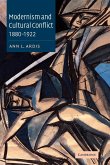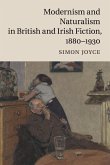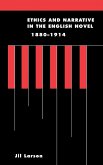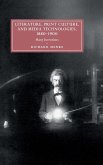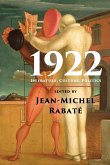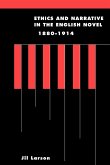In Modernism and Cultural Conflict, Ann Ardis questions commonly held views of the radical nature of literary modernism. She positions the coterie of writers centered around Pound, Eliot, and Joyce as one among a number of groups in Britain intent on redefining the cultural work of literature at the turn of the twentieth century. Ardis emphasizes the ways in which modernists secured their cultural centrality, she documents their support of mainstream attitudes toward science, their retreat from a supposed valuing of scandalous sexuality in the wake of Oscar Wilde's trials in 1895, and the conservative cultural and sexual politics masked by their radical formalist poetics. She recovers key instances of opposition to modernist self-fashioning in British socialism and feminism of the period. Ardis goes on to consider how literary modernism's rise to aesthetic prominence paved the way for the institutionalization of English studies through the devaluation of other aesthetic practices.
Table of contents:
Acknowledgments; Introduction: Rethinking Modernism, remapping the turn of the twentieth century; 1. Beatrice Webb and the 'serious' artist; 2. Inventing literary tradition, ghosting Oscar Wilde and the Victorian Fin de Siècle; 3. The Lost Girl, Tarr, and the 'Moment' of Modernism; 4. 'Talking Back' to the 'Aristocracy of the Arts', mapping the middlebrow in Edwardian England; 5. 'Life is not composed of watertight compartments': the New Age's Critique of Modernist Literary Specialization; Conclusion: Modernism and English studies in history.
Ardis questions commonly held views of the radical nature of literary modernism. She positions the coterie of writers centered around Pound, Eliot, and Joyce as one among a number of groups in Britain intent on redefining the cultural work of literature at the turn of the twentieth century.
Ardis questions commonly held views of the radical nature of literary modernism.
Hinweis: Dieser Artikel kann nur an eine deutsche Lieferadresse ausgeliefert werden.
Table of contents:
Acknowledgments; Introduction: Rethinking Modernism, remapping the turn of the twentieth century; 1. Beatrice Webb and the 'serious' artist; 2. Inventing literary tradition, ghosting Oscar Wilde and the Victorian Fin de Siècle; 3. The Lost Girl, Tarr, and the 'Moment' of Modernism; 4. 'Talking Back' to the 'Aristocracy of the Arts', mapping the middlebrow in Edwardian England; 5. 'Life is not composed of watertight compartments': the New Age's Critique of Modernist Literary Specialization; Conclusion: Modernism and English studies in history.
Ardis questions commonly held views of the radical nature of literary modernism. She positions the coterie of writers centered around Pound, Eliot, and Joyce as one among a number of groups in Britain intent on redefining the cultural work of literature at the turn of the twentieth century.
Ardis questions commonly held views of the radical nature of literary modernism.
Hinweis: Dieser Artikel kann nur an eine deutsche Lieferadresse ausgeliefert werden.


